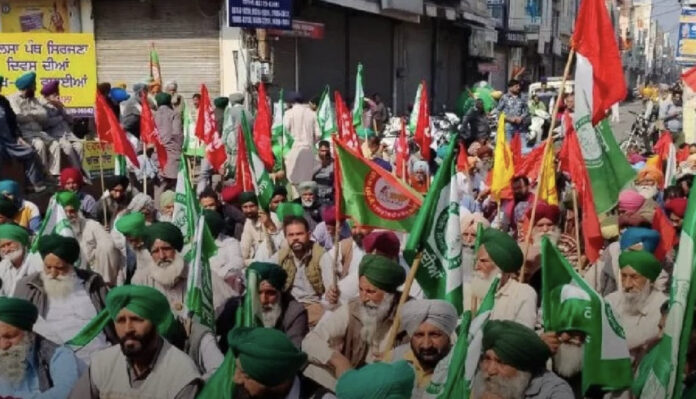Farmers from nearby states of Delhi have paused their protest march towards the capital. This happened after the government suggested a plan to buy certain crops from them at a fair price for the next five years.
The fourth round of talks between the protesting farmers’ leaders and the government happened in Chandigarh and ended late Sunday. The farmers have asked for two days to discuss the government’s proposal among themselves, while some of their other requests are still pending.
The Minimum Support Price (MSP) is a price set by the government to ensure that farmers don’t suffer when crop prices fall too low. It’s like a safety net for them.
Piyush Goyal, who is the Union Minister for Consumer Affairs, Food, and Public Distribution, said, “Cooperative societies like NCCF and Nafed will make deals with farmers who grow certain crops like pulses and maize. They’ll buy these crops from farmers at the MSP for the next five years.”
He also mentioned that bringing more crops like pulses and maize under MSP could help reduce the need for imports, improve water levels in Punjab, and benefit consumers economically.
Under this plan, organizations like the National Cooperative Consumers‘ Federation of India Ltd and the National Agricultural Cooperative Marketing Federation of India Ltd will sign contracts with farmers for five years to buy their crops at MSP, without any limits on quantity.
Goyal also said that farmers demanded MSP for maize and cotton too. “For cotton, the Cotton Corporation of India will buy the entire crop at MSP,” he added. The farmer leaders will decide on this proposal by Monday morning.
The talks included Punjab Chief Minister Bhagwant Mann and went on from 8.15 pm on Sunday till around 1 am on Monday.
Thousands of farmers from over 200 farm unions joined together for the ‘Delhi Chalo’ march. They started this protest on February 13, demanding various things like a guaranteed minimum price for crops, relief from loans, pensions, and better crop insurance.
They’re also asking for higher taxes on imported agricultural products because when these products come in without taxes, it lowers the prices for farmers.
These protests come after a tough year for farmers, with limited earnings due to export restrictions on certain crops and bad weather affecting their harvests.
On Sunday, the fifth day of their march, the farmers remained at the Shambhu and Khanauri points of the Punjab-Haryana border. They’re determined to continue until their demands are met.

